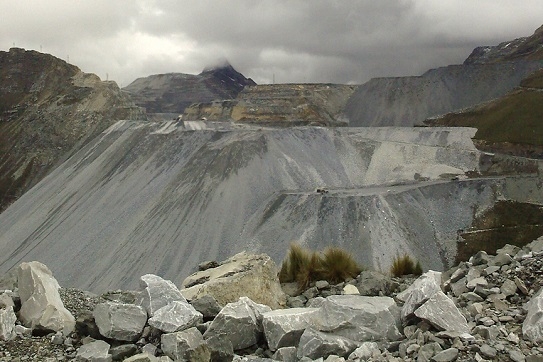You are here: American University Centers Latin American and Latino Studies Extractive Industries in Latin America

As demand for fossil fuels and minerals has exploded globally in recent years, many Latin American governments have come to see extractive industries as increasingly central to their development prospects. Many countries have sought to provide a stable investment climate, diminish legal and regulatory constraints on the establishment and operations of extractive industries, and limit taxes and royalties that states impose on private companies. Priority is given to attracting larger and more long-term investments and to boosting production in existing operations. This has undoubtedly contributed to accelerated rates of economic growth in much of the region and fueled expectations for continued expansion for years to come. Yet critics worry that many countries are failing to strike a balance between the purported economic and fiscal benefits of extractive industry growth and the costs in terms of environmental degradation, community displacement and social conflict, all of which are particularly acute at the local level.
The extractive industry sector makes up a growing portion of exports from many Latin American countries. The rents that states capture from extractive industries provide a significant share of public budgets and have the potential to finance the expansion of programs aimed at reducing the region's severe poverty and inequality. Nonetheless, the expansion of extractive industries is generating increasing conflict between governments and enterprises, on the one hand, and the typically rural and impoverished communities where these industries operate, on the other. It is at the local level where the environmental and social burdens of extractive industries are concentrated, yet the sector's expansion frequently offers relatively little direct or immediate reward to affected communities.
In this context, a global discourse promoting "sustainable mining" has emerged over the past decade. International financial institutions have introduced environmental and social standards and more and more extractive industry companies have signed on to an array of "voluntary" statements and agreements promoting corporate social responsibility. These standards and good practices developed by multilateral institutions and the voluntary codes agreed to by mining enterprises themselves offer normative frameworks for evaluating performance at the national and local levels. There is an urgent need to systematically analyze the degree to which these frameworks are sufficient to ensure social and environmental well-being of affected communities; assess whether they are being implemented effectively; determine appropriate mechanisms for ensuring industry compliance; and identify gaps in the codes themselves and/or in their application in specific industries and territories.
Although balancing the costs and benefits of extractive industry development would appear to require aggressive implementation of environmental and social protections, our sense is that Latin America is experiencing a trend in the opposite direction. To develop a clearer picture of the evolving lay of the land, American University convened a small group of experts on April 8, 2011 to discuss the legal and regulatory landscape and to identify areas of potential future research that could illuminate strategies for ensuring environmental and social welfare while maximizing the economic benefits associated with the growth of extractive industries.